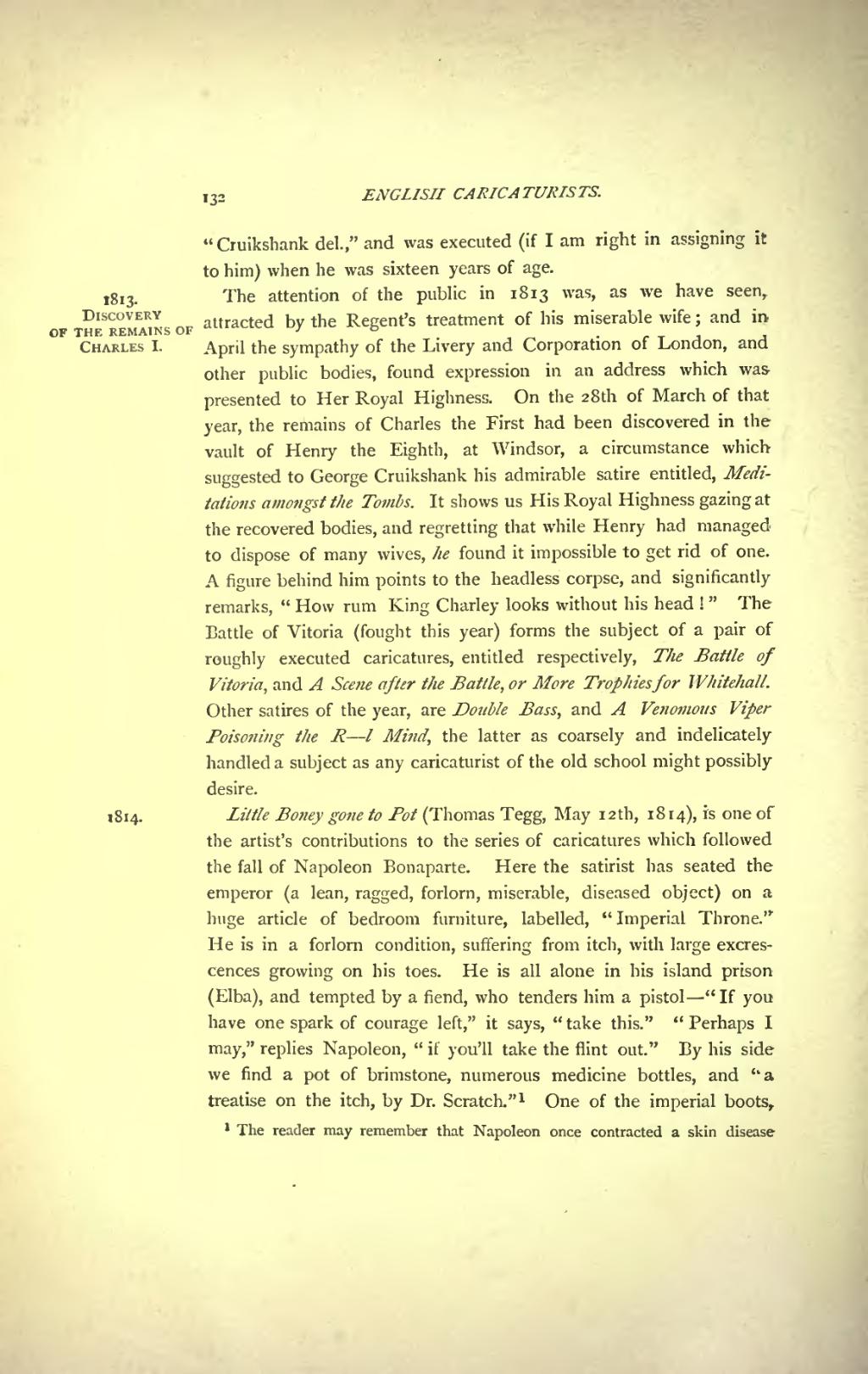"Cruikshank del.," and was executed (if I am right in assigning it to him) when he was sixteen years of age.
1813.
Discovery of the remains of Charles I. The attention of the public in 1813 was, as we have seen,. attracted by the Regent's treatment of his miserable wife; and in April the sympathy of the Livery and Corporation of London, and other public bodies, found expression in an address which was presented to Her Royal Highness. On the 28th of March of that year, the remains of Charles the First had been discovered in the vault of Henry the Eighth, at Windsor, a circumstance which suggested to George Cruikshank his admirable satire entitled, Meditations amongst the Tombs. It shows us His Royal Highness gazing at the recovered bodies, and regretting that while Henry had managed to dispose of many wives, he found it impossible to get rid of one. A figure behind him points to the headless corpse, and significantly remarks, "How rum King Charley looks without his head!" The Battle of Vitoria (fought this year) forms the subject of a pair of roughly executed caricatures, entitled respectively, The Battle of Vitoria, and A Scene after the Battle, or More Trophies for Whitehall. Other satires of the year, are Double Bass, and A Venomous Viper Poisoning the R——l Mind, the latter as coarsely and indelicately handled a subject as any caricaturist of the old school might possibly desire.
1814.Little Boney gone to Pot (Thomas Tegg, May 12th, 1814), is one of the artist's contributions to the series of caricatures which followed the fall of Napoleon Bonaparte. Here the satirist has seated the emperor (a lean, ragged, forlorn, miserable, diseased object) on a huge article of bedroom furniture, labelled, "Imperial Throne." He is in a forlorn condition, suffering from itch, with large excrescences growing on his toes. He is all alone in his island prison (Elba), and tempted by a fiend, who tenders him a pistol—"If you have one spark of courage left," it says, "take this." "Perhaps I may," replies Napoleon, "if you'll take the flint out." By his side we find a pot of brimstone, numerous medicine bottles, and "a treatise on the itch, by Dr. Scratch."[1] One of the imperial boots,
- ↑ The reader may remember that Napoleon once contracted a skin disease
